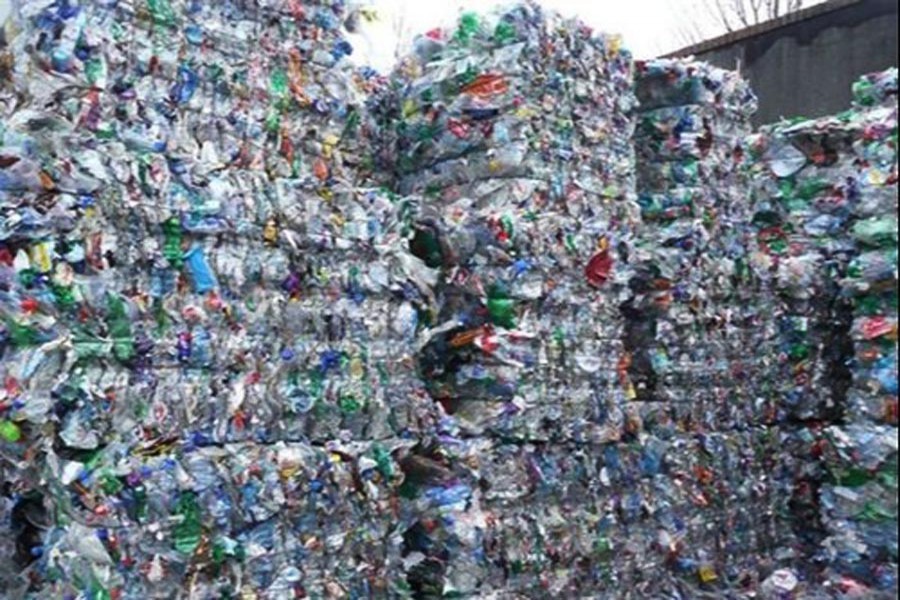Illegal plastic waste affects Bay of Bengal ecosystem

Dhaka, 15 February, 2021: Huge transboundary movements and trading of illegal plastic waste into Bangladesh is hampering the ecosystem of Bay of Bengal and ultimately the sustainable development of the country.
Around 1.2 million tonnes of plastic wastes were shipped to Bangladesh in three years from the US and the UK, according to a study of Environment and Social Development Organization (ESDO).
“Malaysian authorities sent back 150 containers of plastic waste imported from 13 countries including Bangladesh as the consignment had non-recyclable plastic,” it said.
ESDO unveil its recent study on ‘Toxic plastic waste: Situation of disposal, management and trade in Bangladesh’ on Thursday.
ESDO Chairperson Syed Marghub Murshed urged the government to take immediate steps to stop illegal plastic waste trade and its movement into Bangladesh.
“Waste import is prohibited in Bangladesh as per the import policy. Plastic waste has been recognized as one of the major environmental threats of recent times globally, he said.
It is made up of harmful chemicals that get released into the environment upon disposal. The chemicals eventually enter the human body through the food chain, causing damage in endocrine, nervous, respiratory, cardiovascular, renal, and immune system.
It also gives rise to the degradation of ecological components including water quality degradation, soil fertility deteriorations, temperature increase, pollution, an increase in vector-borne diseases, etc.
Previously, China has been receiving the greatest amount of plastic waste but in 2018, the Chinese government banned the import of 32 kinds of solid wastes including plastic waste.
As a result of China’s ban, from developed countries, a vast amount of disorganized wastes blended with plastic waste are entering the countries of Southeast Asia including Malaysia, Indonesia, Thailand, Vietnam, Taiwan and Bangladesh due to cheap labor and limited environmental regulations.
ESDO Executive Director Siddika Sultana expressed concern on the transboundary movement of plastic wastes in Bangladesh.
She asked the government to promote cost-effective alternatives to single-use plastics and enforce a legal framework together with Basel Ban Amendment, UNEA resolution and Bangladesh import policy order (2015-2018).
Read More
.

